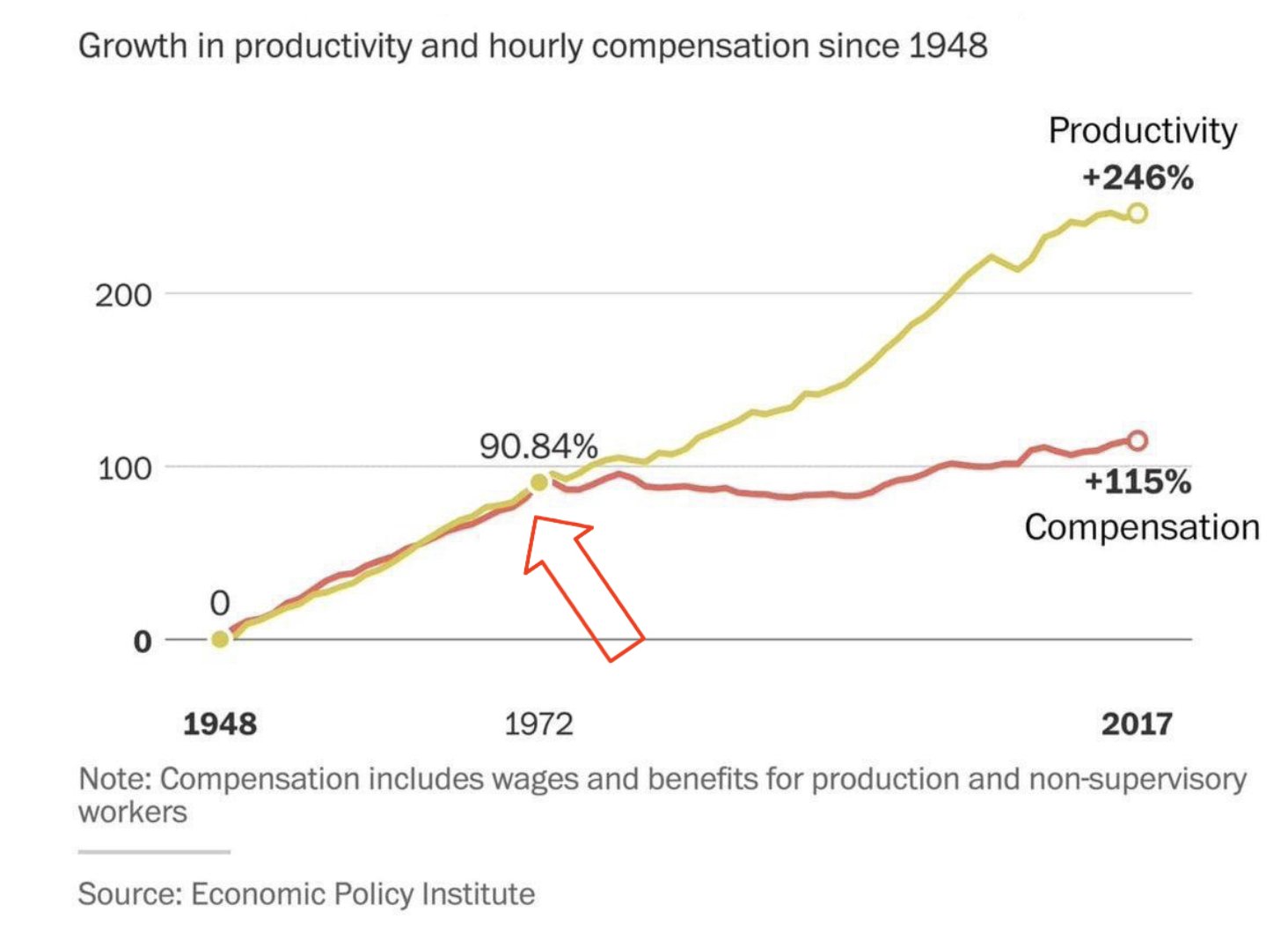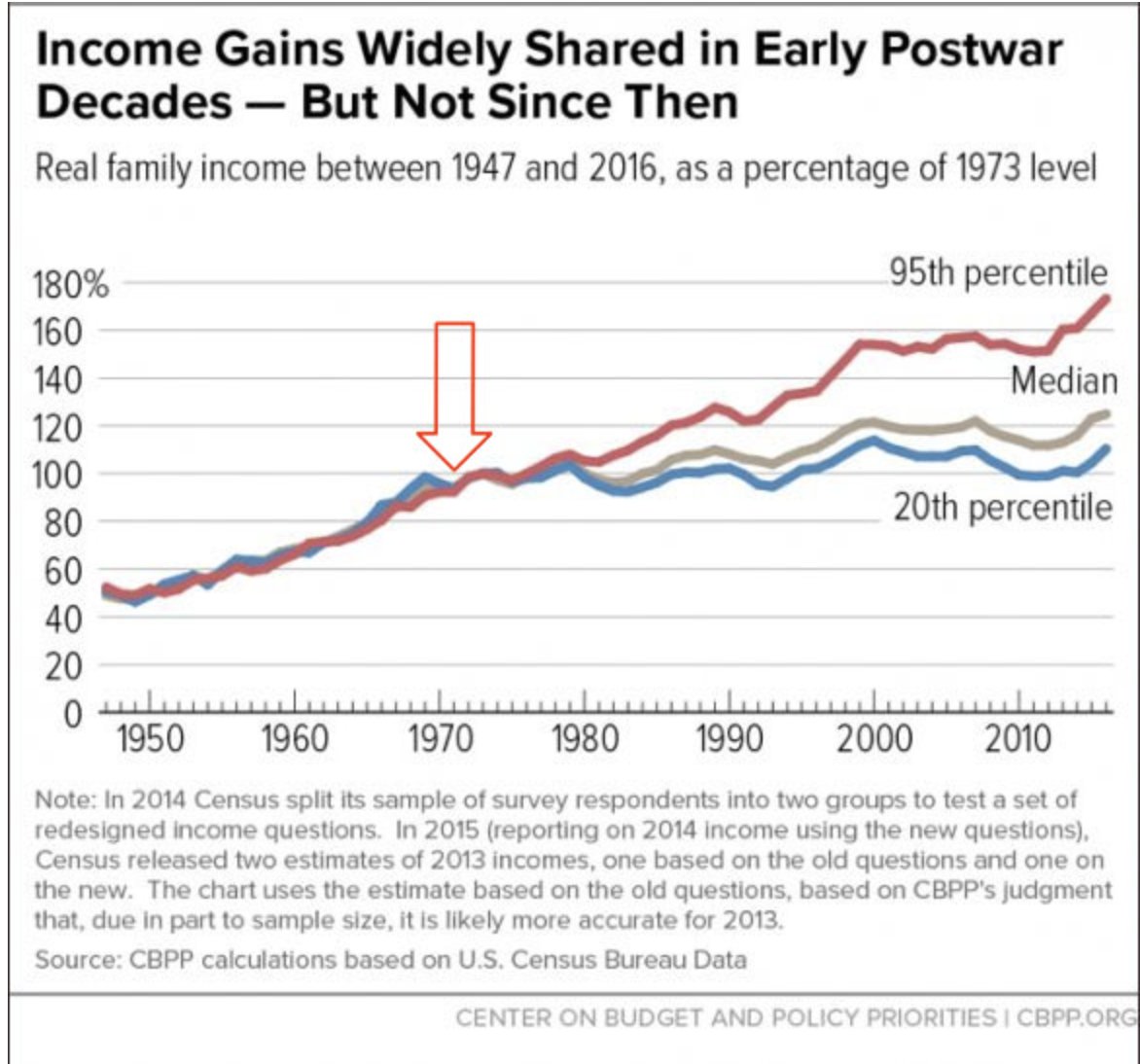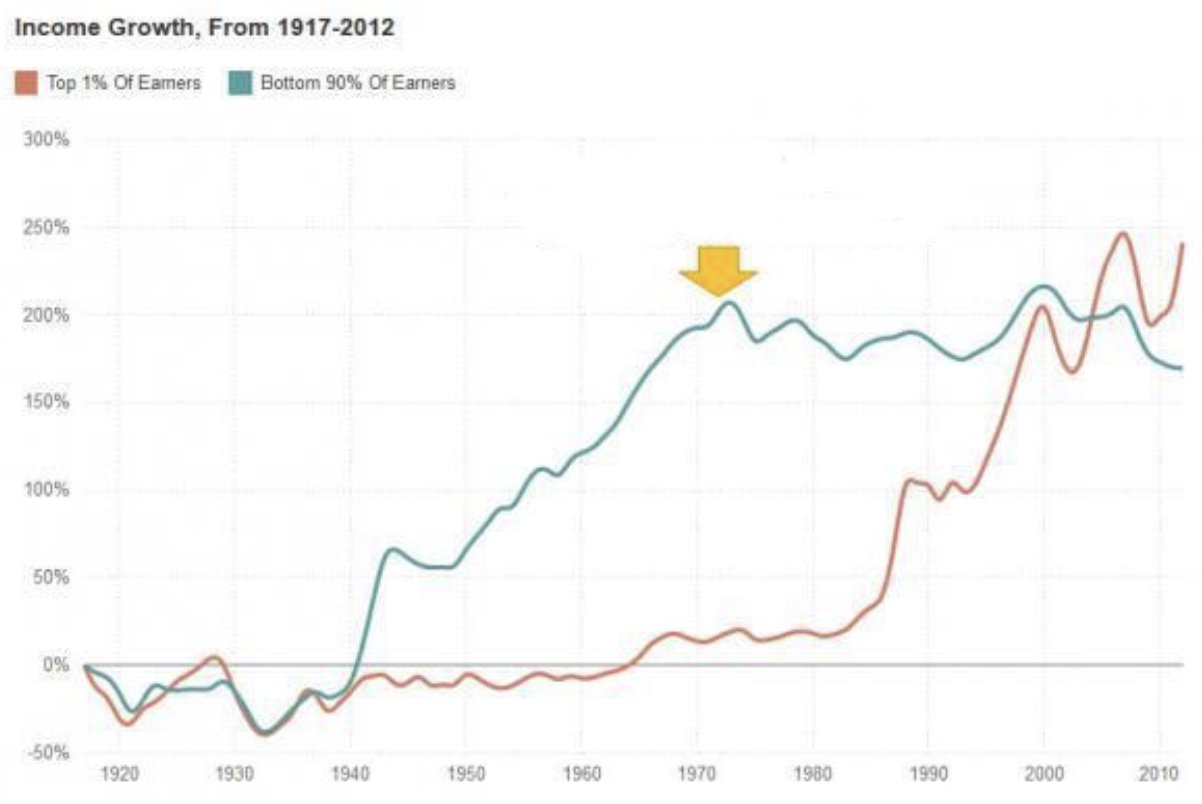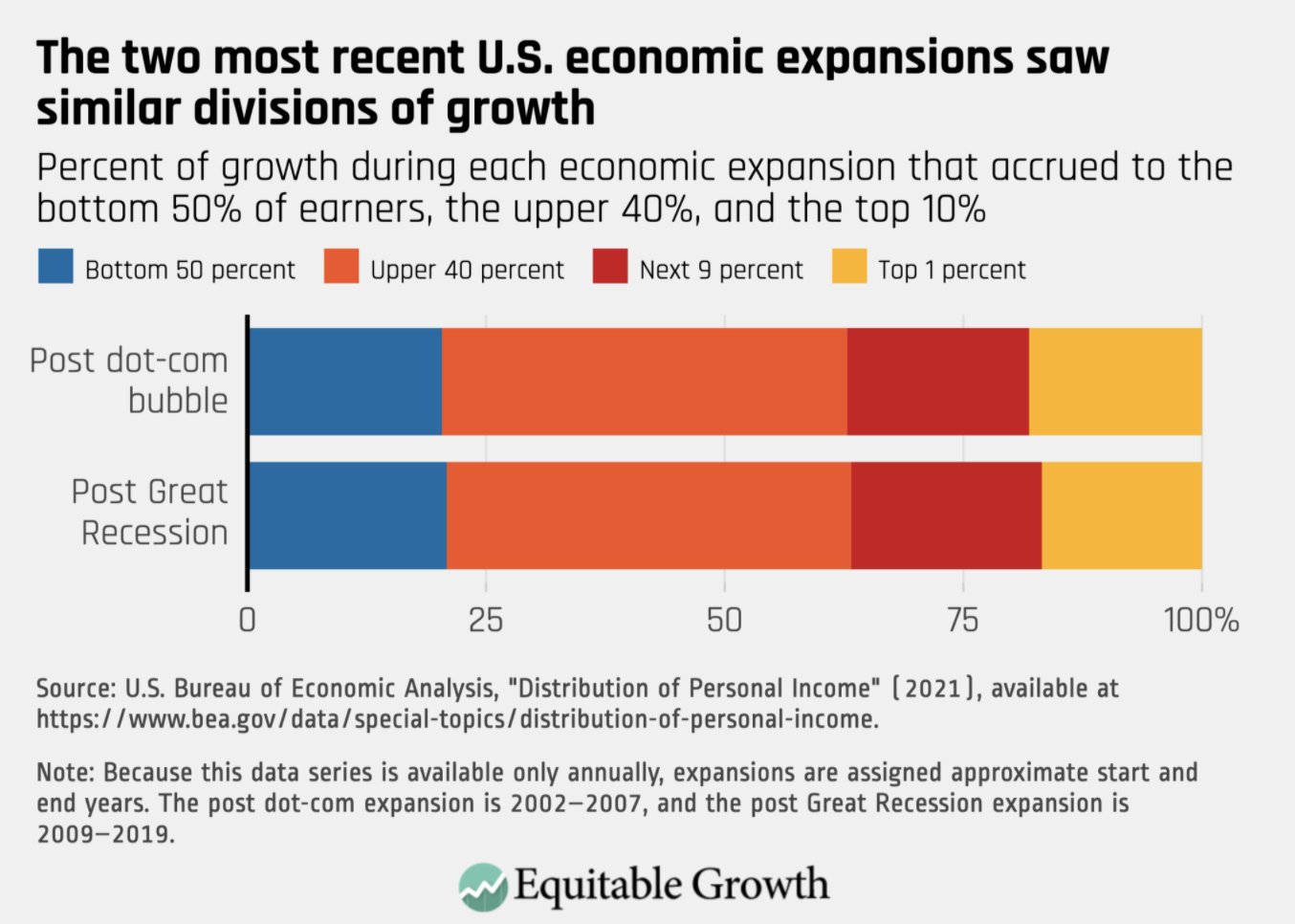Thread
We're not in the throes of late-stage capitalism. We're living through the late stages and the death rattle of the post-1971 fiat system.
Mistaking the two (and basing solutions/policies on this mistake) is a recipe for disaster.
🧵Let me explain 👇
Mistaking the two (and basing solutions/policies on this mistake) is a recipe for disaster.
🧵Let me explain 👇
I think a growing number of people feel a pressing sense that we are approaching the end of something. This sensation of approaching finality, of historical transition, and of fraying order has saturated and informed our politics, as well.
The collective imagination and will of our two political parties is limited to revivifying FDR or Reagan, respectively, with increasingly diminished (or even counterproductive) results. Each party wants to return the country to its preferred trajectory.
But these paths have converged and ended. Hence the creeping sense that we've reached some terminal point. Many, particularly those on the Progressive left, refer to this state of affairs, this liminal phase, as “late-stage capitalism,” a phrase rooted in (but not coined by) Marx
The term’s meaning has evolved over time but has recently become a kind of nebulous catchall term, a meme of lament for the yawning wealth inequality and the absurdity of everyday life, which has come to resemble, in its (at times) cartoonish futility, a Samuel Beckett play.
Current events have only intensified the lament. This has led some to speculate (or boldly assert) that we have reached the end of capitalism as a viable economic system. I.e. w/o heavy intervention, it either ends in a neo-feudalism or an anarchic state of nature.
Hence calls for govt. to centralize more, exert plenary control, redistribute, etc. But just as the answer is not to conjure the senile ghost of Reagan, it is also not to loop the greatest hits of FDR at a higher volume. And it is certainly not to abandon capitalism altogether.
Our discourse seems confined to these 3 ideas for a couple of reasons: (1) we’re trying to jam round reality pegs into square partisan holes, and (2) we’re mislabeling the moment (and misdiagnosing its flaws) because our language has not developed beyond Cold War binaries.
I posit that we are, indeed, in the late stages of something, but this “something” is not capitalism. Much of what we malign as or take as evidence of late-stage capitalism, I would argue, is symptomatic of something else: late-stage fiat.
Consequently, our efforts should not be marshaled toward the jettisoning or transcendence of capitalism, but rather toward error-correcting the introduction and proliferation of the fiat monetary order.
Contemporary conceptions of late-stage capitalism are primarily based or born out of pronounced wealth inequality, which is seen as the inevitable and inescapable result of capitalism.These results, the argument goes, are inherent to and thus predetermined by a capitalist system.
Increasingly, a rising tide does not lift all boats. This is because the bottom 50% of boats are not even exposed to the tide. They’re not even in the water because they don’t own assets. This has only gotten worse in recent decades.
These are not the inevitable results of capitalism, though. These are the results of a fiat system in which those closest to and exercising the most influence over the rules of the monetary network reap the most benefits.
In the run-up to the 2020 election, as the fortunes of many of the world’s billionaires grew exponentially during the course of the COVID pandemic, the anti-capitalism chorus grew particularly vociferous. Mostly left out of the discussion was the role played by monetary policy.
We print a bunch of money, which b/c of the Cantillon Effect ends up first in hands of the wealthy, who plow it back into assets, creating asset-price inflation and enriching asset-holders immensely. That's why Bezos and Musk compounded wealth during the pandemic.
The ability to print money at will (and remember, 40% of the dollars currently in circulation were created in 2020-2021), is an inherent feature of fiat currency. It is not an inherent or necessary feature of capitalism.
There are other phenomena often attributed to late-stage capitalism that are more aptly attributable to and uniquely enabled by the fiat currency system. I discuss all this and more in the latest issue of my free weekly #Bitcoin newsletter:
thinkbitcoin.substack.com/p/think-bitcoin-issue-26?s=w
thinkbitcoin.substack.com/p/think-bitcoin-issue-26?s=w
TLDR: We're mistaking capitalism problems for fiat problems because we're stuck in these inapposite Cold War binaries. The binary is not capitalism vs. socialism. It’s fiat vs. sound money. Much of our politics now is concerned with solving the wrong problem on the wrong level.
Which is why we need to push back against this inapt framing, since it constrains the menu of solutions and, in the case of #Bitcoin, tends to militate against its very existence.
In the issue, I also share some great work by @gladstein, @WhatBitcoinDid, @BitcoinMagazine, @matthew_pines, and @DavidZell_ .
Shout-out to the whole #Bitcoin community for inspiring me every day.
Shout-out to the whole #Bitcoin community for inspiring me every day.
Gm everybody.
Mentions
See All
Croesus 🔴 @Croesus_BTC
·
Mar 7, 2022
Solid thread, nicely done



